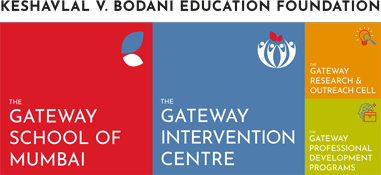Gateway has three programmes – Lower, Middle, and High School. At Gateway, therapies are integrated with academics. The programmes are designed to be developmentally appropriate and strategic for the future path of each learner, and they have a different focus for different age groups.

In lower school, an emphasis is given on developing foundational skills. This includes language skills such as speaking, listening, and foundational literacy; foundational maths skills; age-appropriate social and emotional skills; and physical/sensory-motor development.
Foundational skills are prioritised over a breadth of content knowledge for learners at this age to ensure they are equipped with the necessary skills to cope in higher grades.
In middle school, we adopt a balanced approach. Learners continue to work on foundational skills along with their academic content. At this stage, they may be taught to make use of adaptive skills to access the content, even if they struggle with foundational skills. For example, a 12-year-old learner struggling to read can be taught to use a computer reader or given a reader and writer accommodation to access the same content.
In high school, the focus shifts to supporting the transition of learners in the next phase of their journey beyond Gateway. A vision is developed collaboratively with parents, and strategic efforts are made to support learners with all the prerequisites required to succeed in their path ahead.
Below is a detailed overview of the various components of The Gateway programme:
| Transition
(18+) |
Curricular (Visual Arts, Performing Arts, & Physical Education) | Career Path Programme
(ASDAN Certification) |
|||
| High School
(14-18) |
NIOS 12th | High School Adaptive Programme | Internships
Service Learning Programme Literacies |
||
| IGCSE 10th | NIOS 10th | ||||
| Middle School
(11-14) & Lower School (7-11) |
Academic Curriculum (Key concepts in Language, Maths, Multi-disciplinary Learning Units – MLU) | ||||
| Foundational Skills (Sensory-Motor, Speech & Language, Social-Emotional, Executive Functioning, & Literacy) | |||||
Academic Curriculum
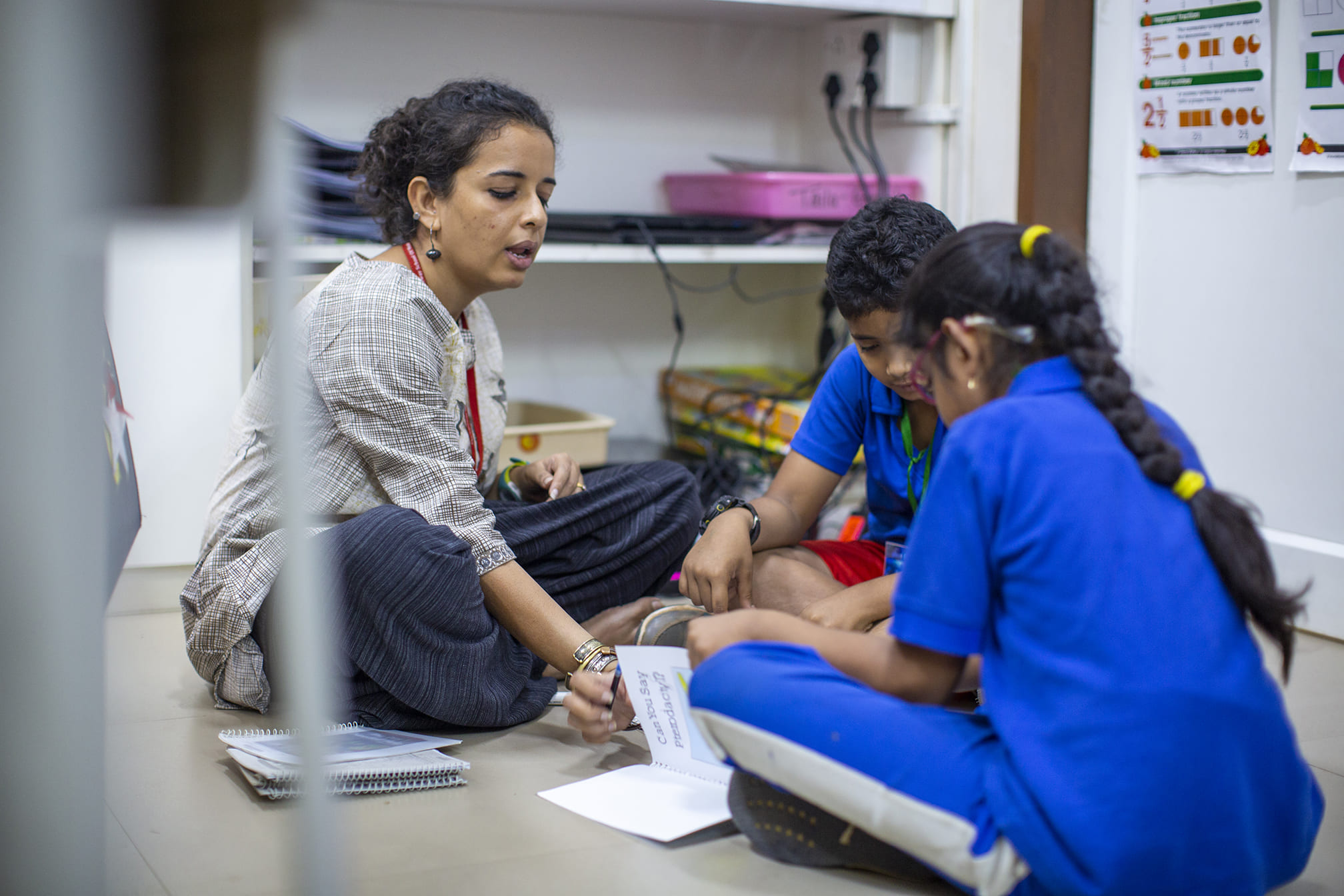
The academic curriculum at Gateway is designed to provide the foundational knowledge and skills that all learners deserve. The curricular programme draws from evidence-based, academic standards and the NIOS and Cambridge curriculum. We incorporate the core disciplines of Language and Literacy (English), Humanities, Sciences, Mathematics, Information and Communication Technology, Arts, and Physical Education.
Our Lower and Middle School curriculum is centred around multi-disciplinary units (MLUs). These units integrate standards from across all disciplines. Integrated units help learners better understand how knowledge is connected. They also help learners generalise and transfer knowledge across classes and their day-to-day lives.
In addition to our core curriculum, we also have a homeroom specific curriculum. The homeroom curriculum is tailored to the needs of learners in a particular homeroom. It addresses the foundational areas of socio-emotional, adaptive skills development, speaking and listening, and executive function skills.
The curricular programme is taught in age-appropriate groups by one or more teachers to ensure optimal differentiation for all learners. While the medium of instruction is English, the team follows principles of universal design for learning, multi-sensory techniques, group and peer learning, differentiation and just right scaffolding, and translanguaging across conversational languages to support learners to access learning better.
Therapies at Gateway
At Gateway, we provide school-based therapies that are integrated with academics. All therapies are focused on objectives that support our learners with academic learning. At Gateway, we proactively provide learners with therapies based on their areas of need – this may happen in the form of whole group classes, small group sessions, or in specific cases, a 1:1. Further, to ensure that the skills and strategies are generalised throughout the day, the therapists actively collaborate with all relevant team members and also push-in to different classes to support the learners.
If any learner needs support above and beyond what is being provided in school, the team shares home programmes with families or recommends outside therapy.
Social-emotional learning (SEL)
Our Social-Emotional (SE) programme is adapted from the evidence-based framework created by CASEL – the Collaboration for Academics and Social-Emotional Learning. At Gateway, we proactively explicitly teach our learners age-appropriate skills related to self-awareness, self-management (including coping strategies related to mental health), social awareness, relationship skills, and responsible decision making as we know that these areas are pivotal to be successful in our day-to-day lives. Along with this, another key area includes age- and developmentally appropriate sex education. Further, across our school, we have mindfully and proactively put in structures aligned to PBiS (Positive Behaviour Intervention and Support).
The SE team works closely with the team to support classroom and behaviour management to ensure that all learners are proactively taught expectations and relevant skills and routines, followed by the team reminding, reinforcing, and redirecting the learners through the day. As and when needed, we ensure the consequences are logically related to the behaviour. At Gateway, we believe that we must model the behaviour we want to see in our learners and are consistently ensuring that we are role models for respectful behaviour towards all members of the community.
As and when needed, we provide responsive behaviour support in collaboration with the relevant team members.
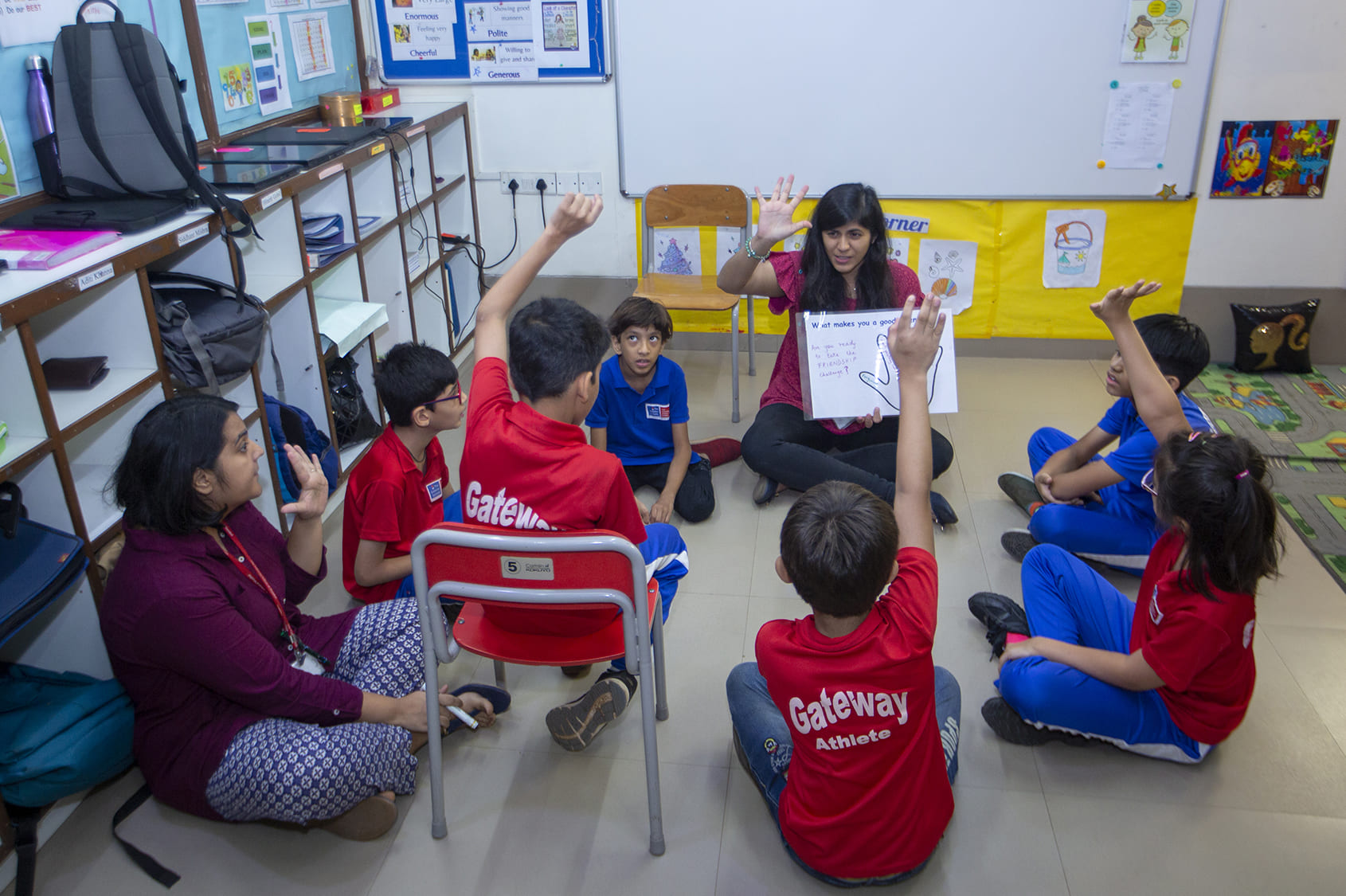
Sensory Motor
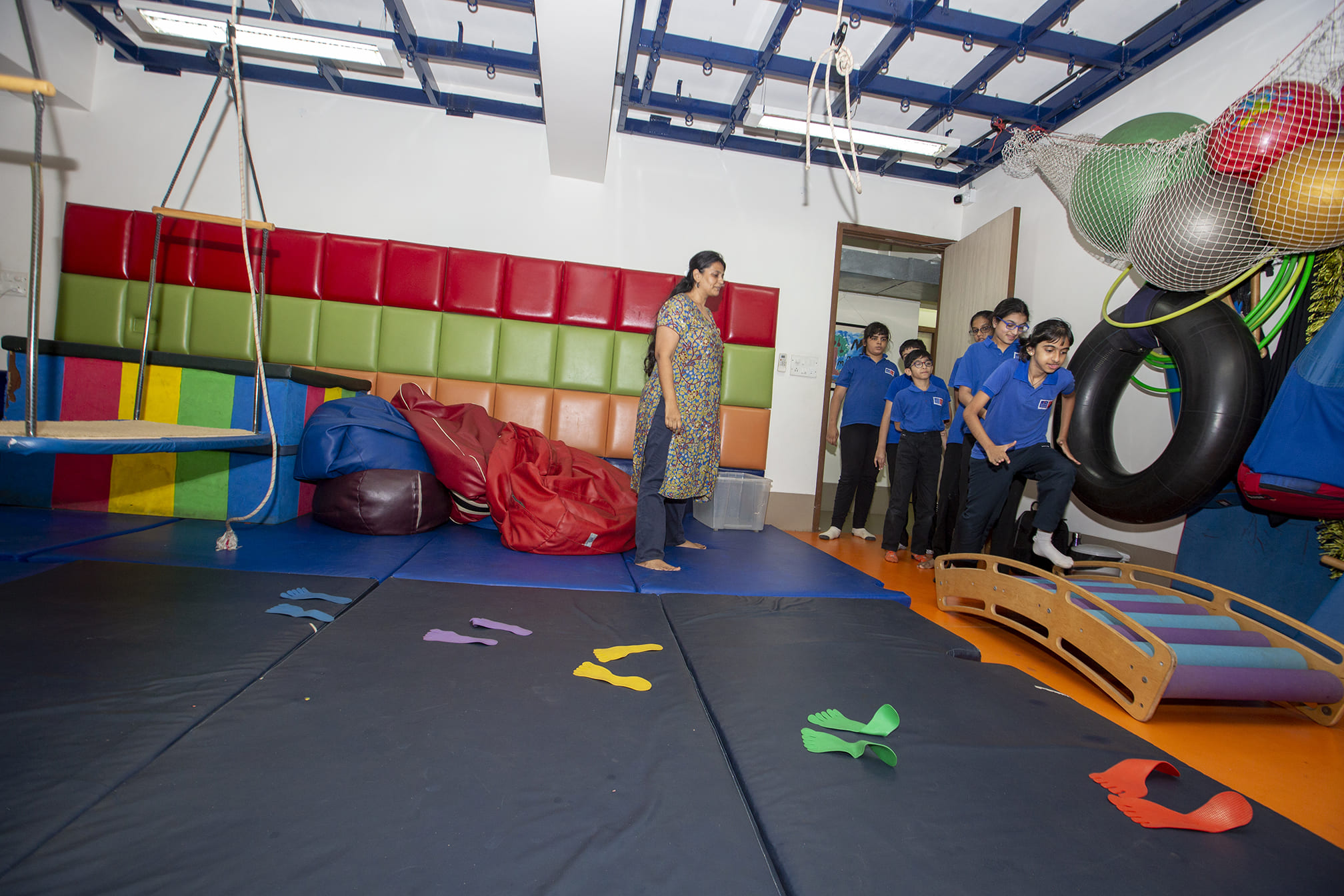
The Sensory Motor (SM) Development Programme focuses on building a strong physical foundation to support the development of academic and life skills. The SM programme includes individualised goals that address sensory integration, occupational therapy, and physical therapy, all of which directly enhance classroom learning.
SM therapy targets five core sensory motor areas: self-regulation (attention), gross and fine motor skills, visuoperceptual skills, body awareness, and motor planning. The therapists also collaborate with teachers to make classroom environmental adaptations that help regulate learners’ sensory systems and bodies, creating an optimal learning environment.
In addition to supporting movement-based learning as part of a multisensory approach (key to Universal Design for Learning, UDL), SM team also supports self-management skills in lower and middle school. This support is also there for the older learners in the form of adaptive daily living skills (ADL).
Another focus area is explicit handwriting instruction for lower and middle school learners through a programme inspired by the Handwriting Without Tears approach, which emphasises effective and structured writing techniques.
Speech and language
Our Speech and Language Therapy programme focuses on developing active listening, speech, language, and communication skills to empower our learners to become effective communicators both in the classroom and in their daily lives.
The curriculum includes explicit teaching of social pragmatic skills and group work. Our speech therapists partner with families to support learners with oro-motor and feeding concerns through tailored home programmes. The speech therapists actively collaborate with drama educators to offer a specialised speech and drama programme that enhances oracy skills through engaging drama techniques. In our high school adaptive programme, our speech and language therapists focus on teaching functional communication skills alongside language teachers to develop essential speaking and listening skills relevant to everyday situations.
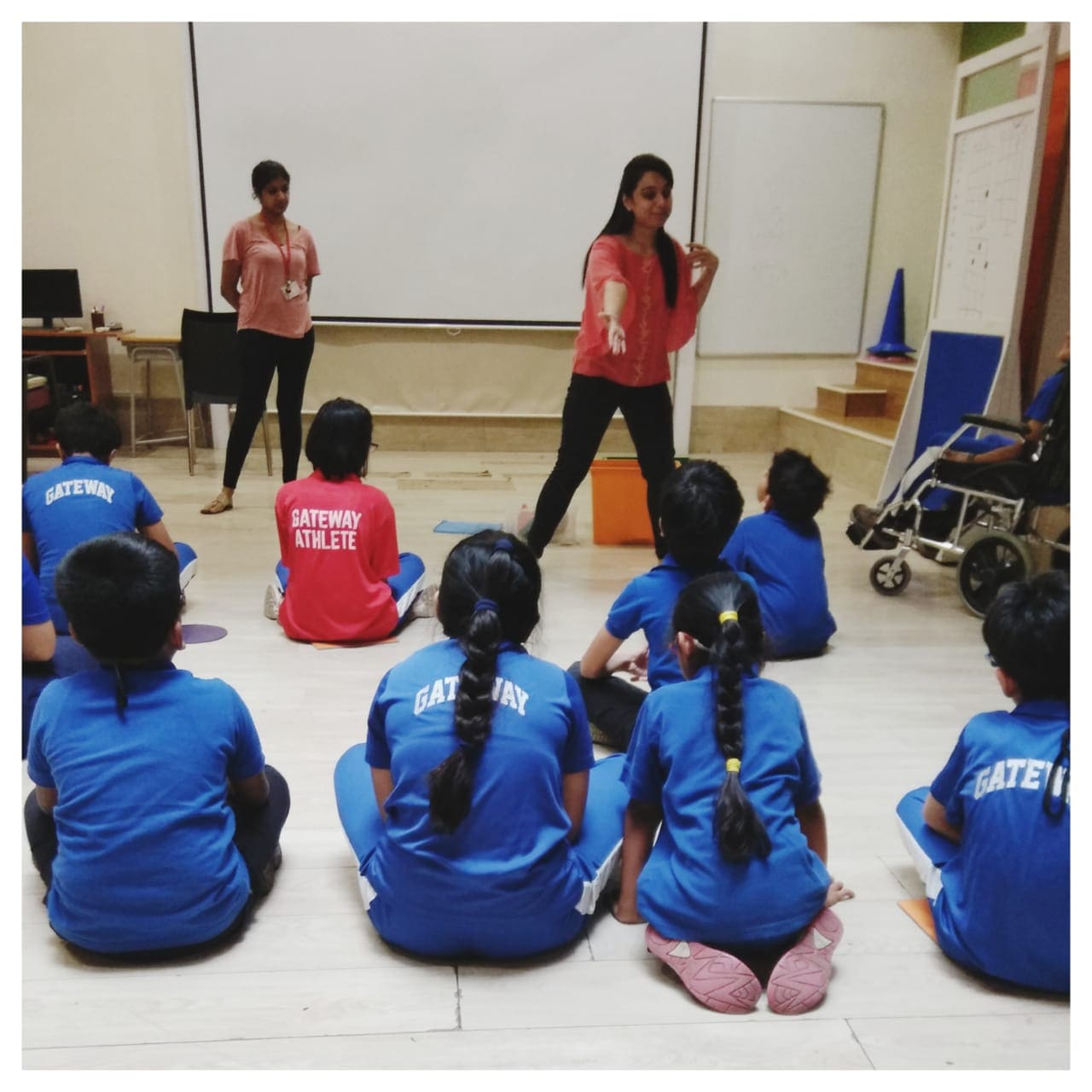
The Individualised Programme

At Gateway, each learner’s programme is designed to optimise learning and development for the individual learner.
One homeroom teacher serves as a learner’s advisor who oversees the learner’s individualised programme. The advisor, along with our multidisciplinary team of parents, teachers, therapists, and the learners themselves, is responsible for identifying and prioritising goals for the learner. These goals may be an area of need such as speech and language development, sensory-motor development, socio-emotional development, or foundational academic skills such as reading, writing, or executive function skills.
